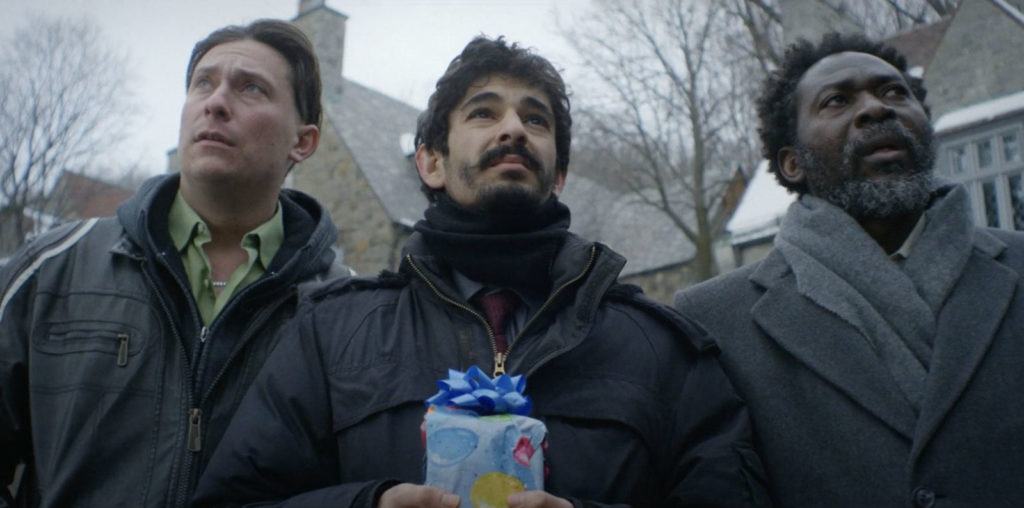
Best known for his violent films about Japanese mafia (a.k.a. yakuza), director/actor Takeshi Kitano is now showing his softer, more interpretive side. “Dolls” is his most challenging and finest work to date, as he riffs off traditional Bunraku doll theatre stories to tell poignant tales of undying modern love.
His first story is the most ambitious: Matsumoto (Hidetoshi Nishijima) is a young man who escapes a marriage of convenience to find his true love, Sawoko (Miho Kanno), whom he had left for a fiancée of his parent’s approval. Driven mad by his decision, Sawoko has been institutionalized. When Matsumoto rescues her, he realizes she is too far-gone, but stays dedicated to her nonetheless. Tied together by a red rope, they begin a journey together through a set of gorgeous landscapes that reflect the four seasons.
Intertwined with this story are two others. A disgruntled old yakuza boss (Tatsuya Mihashi) is ill of health and longs to revisit the place where he left his lover years ago. He returns to find a couple of surprises. The other story involves a pop star (Kyoko Fukada) who is adored by throngs of fans. When a car accident disfigures her face, she retreats from the public eye, only to discover the unwavering dedication one fan has to her.
Fans of Kitano’s other work (the clumsy comedy “Kikujiro” excepted) may not know what to make of “Dolls.” In its more tragic moments, Kitano does revisit some of his older techniques (particularly a well-shot yakuza revenge scene), but this film operates on a more symbolic level, allowing colorful scenes to do the talking. The cinematography is stunning, particularly where Matsumoto and Sawoko walk through the four seasons of life. Their final shot is one of the most heart-tugging cinematic portraits you’ll see in any film this year.
